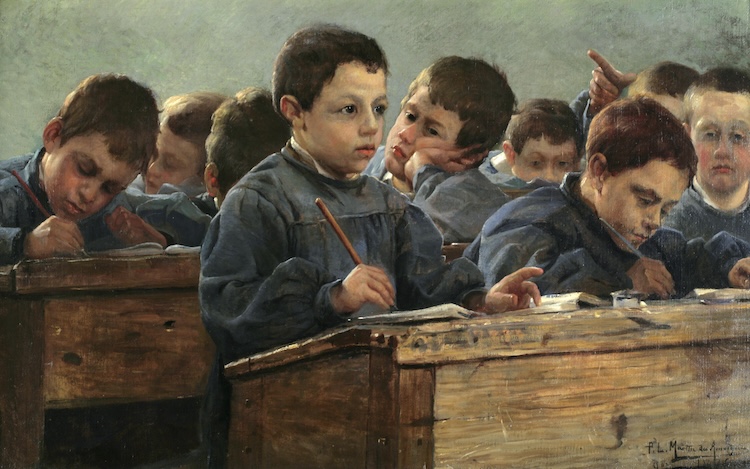
An alarming number of children from Catholic families lose their faith during elementary and secondary school. By age thirteen, 50 percent fall away from the Church; by eighteen, it’s 86 percent.
This exodus is not unique to Catholics—other Christian communities struggle with similar problems. But many of these children are in Catholic schools for 16,000 hours from pre-school through 12th grade. And the 1.6 million students that are in the classrooms far exceed the twelve apostles that Jesus Christ started with.
After serving as Superintendent of Schools for five years for the Archdiocese of Boston—one of the largest Catholic school systems in the nation—I believe that Catholic schools could lead a national Catholic renewal. But many Catholic schools are not properly ordered. We need to do many things differently.
For starters, we must ensure that we have a strong and authentic witness to the Catholic faith in every classroom. Pope Paul VI, in 1975, noted that “Modern man listens more willingly to witnesses than teachers, and, if he does listen to teachers, it is because they are witnesses.” Such is the purpose of the St. Thomas More Teaching Fellowship, for instance, which recruits and trains faithful Catholic college graduates.
We also need school leaders fully committed to evangelization and total fidelity to the Magisterium. As superintendent, I had the privilege of appointing 75 percent of the current parochial school leaders in Boston over a five-year time period—one of the largest intentional turnovers of Catholic school leadership talent in the nation.
In From Christendom to Apostolic Mission, Msgr. James Shea describes the shift from Christendom, a culture largely defined by Christianity, to a new Apostolic Age, in which we must go forward like the original apostles and make our case better than we have. Catholic schools have lost their evangelizing focus, and as a result, we are facing widespread disbelief, and far too many believers who are poorly catechized.
We need to give school leaders and teachers training and the tools to make every class Catholic. Catholic schools make a huge mistake when they relegate Catholic belief to a daily religion class, ignoring the Catholic contribution to disciplines such as art, music, architecture, philosophy, science, and world history.
Moreover, every culture has its “stories” that communicate and pass on its beliefs, values, and aspirations. Today’s cultural left has deliberately sought to undercut narratives around American exceptionalism and reject our rich Christian and Western heritage. Thus, when Catholic schools go along with secular mass-market textbooks and make a concerted effort to downplay classics, they are sowing the seeds of their own cultural and religious demise.
The teaching of American history, for example, has been profoundly corrupted by Howard Zinn’s ideological A Young People’s History of the United States and the New York Times’s 1619 Project. I was offered a donation of $1 million when I was superintendent to mandate the 1619 Project in all Catholic classrooms in the Boston Archdiocese, an offer I politely declined after I got over the audacity of the request.
Thankfully, schools have alternatives. Land of Hope: An Invitation to the Great American Story is a superb example, written by Wilfred McClay, a professor at Hillsdale College. Land of Hope is engaging, scholarly, and historically accurate. It’s also intellectually honest about dark chapters in American history. What Land of Hope doesn’t do is see every event and person through an ideological lens that neglects historical and cultural context. That’s what separates it from Howard Zinn and the 1619 Project.
Reversing cultural decline and the related loss of religious belief in the U.S. is not a weekend task. It’s the work of a generation. But it begins by restoring faithful leadership in Catholic schools, embracing and teaching the moral truths of the Catholic Church and Christian experience, passing on the Catholic intellectual tradition, and providing quality textbooks to replace the intellectually corrupt materials that infect far too many schools. By renewing our Catholic schools, we ensure the future of the Church.
Anti-Humanism at Home and Abroad
Canada’s laws on medically assisted dying are remarkably progressive even by today’s standards. In 2022, the government…
I Fear I Hate the Homeless
Last year, a week before Thanksgiving, a homeless man stabbed three people to death in Manhattan. The…
Lent and the Purification of Memory
On December 20, 2002, I was at lunch in the papal apartment when the wide-ranging conversation John…

